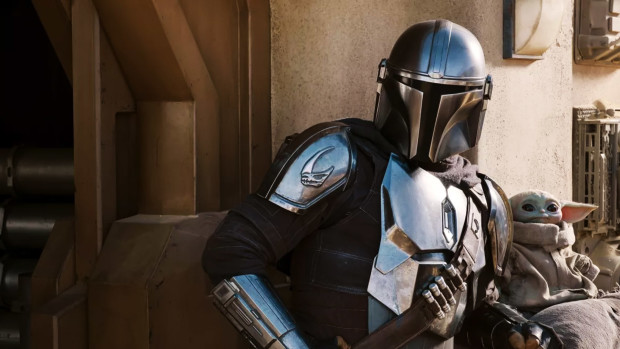
Walt Disney has flirted with its 52-week lows and it's likely to fall well below that. That's because the company faces unprecedented challenges that seem incredibly daunting.
First, the company has seen the movie business collapse. You used to be able to essentially guarantee that two or three Marvel movies, two Pixar, a live-action remake of an animated classic, and a Star Wars movie would earn at least $1 billion at the global box office.
DON'T MISS: Bud Light offers unique apology to beer drinkers
Now, all box office releases are suspect. People simply go to the movies less and that's not going to change. Yes, the biggest event films might still bring in $1 billion or more, but films that used to be nearly certain hits can bomb.
The end of the movie business is a pretty big problem on its own, but it's not the only one Walt Disney (DIS) -) CEO Bob Iger has to solve. He must also figure out a business model for ESPN as the cable universe collapses and the company loses hundreds of millions of dollars each month it used to collect from cable companies.
Add in the company's political battles in Florida, questions about the cost of content for the Disney+ streaming service, and general economic concerns hurting theme park attendance and you can see why people have become wary of owning Disney stock.
Those people are wrong.

Image source: Walt Disney
Disney has one edge no company can catch
Disney's situation shows how short-term thinking can cause people to lose money in the stock market. When you evaluate a stock, the question should not be "What will this stock do this week, this month, this quarter, or even this year?" Instead, you should ask "What gives this company an edge that its rivals do not have?"
In Disney's case, the company has an unassailable lineup of intellectual property (IP) that no company – really no three combined companies – can equal. The Mouse House has shown that the Marvel and Star Wars universes offer endless possibilities.
If people will watch movies starring "Ant-Man" and a television show built around a former bounty hunter who never takes his helmet off, then Disney has proven the resilience of its content. The same logic applies to ESPN. Consumers aren't going to stop watching sports or become less interested in amazing stories starring familiar characters.
Essentially, while it's easy to write articles about Marvel fatigue or point to "Solo: A Star Wars Story" as audiences losing interest, that's not actually what's happening. Yes, Disney has made some poor choices with some of its content.
"Solo," for example told the backstory of a character where nobody had any interest in where he came from because they knew where he went. In addition, the company may have made the MCU a little too confusing, but those are correctable problems.
Currently, Disney has the right IP and ESPN has the sports people want to watch. Good content isn't the company's problem, distribution, and monetization are.
Disney has a distribution problem
Disney's biggest problem is that it needs to figure out how to properly monetize its content. People have not become less interested in good storytelling in movies and television shows nor have they decided to stop watching top-tier sporting events.
They have, however, decided that most movies aren't worth leaving the house for and, people who don't watch sports, have gladly walked away from the cable bundle. That has put Disney in a position where Iger needs to completely reimagine how the company produces and monetizes content.
Disney+, for example, starts at $7.99 a month, which is less than half of the $15.99 Netflix (NFLX) -) charges for its basic, ad-free plan. That's absurdly too low for what Disney has offered.
If Disney makes its streaming service the home for its content –movies, new Star Wars and Marvel shows – basically everything the company produces, then it would be a value at $20 a month. That's not a quick transition, but Disney could (and will) steadily raise prices as long as it keeps adding new shows and movies in its biggest franchises.
The same applies to ESPN. Disney used to make $9-12 per cable subscriber (whether they watched or not and that universe has shrunk by about 30 million people. Cord cutters are largely people who did not find the cable bundle a good value.
ESPN fans will buy the service directly or pay for the sports they want to watch. Exactly what that will look like remains to be seen, but sports fans won't give up following their favorite teams just to save a few bucks (and have historically shown that they will pay for big events.)
Disney has short-term problems, which create a huge long-term investment opportunity. Every content producer faces monetization questions right now, but consumers won't stop paying for content and they may actually pay more for premium offerings.
It may take a few years, but at the end of the day, IP matters, and no company equals Disney when it comes to owning franchise properties.
Investing isn't betting on sports or trying to guess where a stock's price will go in the short-term. It's identifying companies with real long-term advantages that have management who can solve short-term problems. Disney has both and will ultimately figure out how to make money off of its incredible IP library.
Get investment guidance from trusted portfolio managers without the management fees. Sign up for Action Alerts PLUS now.







